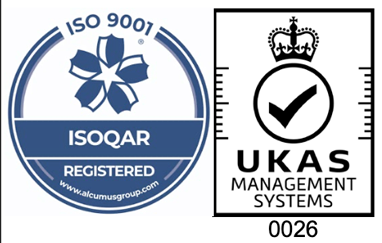A question of sustainability – are we doing enough to work towards a greener planet?
29th June, 2018
Rubber demand and production isn’t slowing down, with global consumption by 2020 estimated at 19.4 million tons by the International Rubber Study Group (IRSG). This could mean we face a surplus of over 1 million tons of natural rubber by that time, which is a contributing factor to the overall attitude towards sustainable rubber production.
Rubber production has both a negative social and environmental impact on the planet. Because of this, the IRSG has created a dedicated task force within its organisation called the Sustainable Natural Rubber Initiative (SNR-i).
Their work is focused on putting forward guidelines and criteria which help inform best practice with regards to rubber production. Sticking to these rules is voluntary, but massively encouraged.
On a planet that’s quickly running out of natural resources, the SNR-i’s main goal is to promote sustainable rubber production, as well as efficient use of naturally occuring materials. They also aim to shed light on the importance of transparent communication within the supply chain – this can only be achieved by implementing a clear process for supplier engagement.
So, how is sustainable rubber produced?
Rubber has many uses. It’s a highly versatile material, meaning it’s found in nearly everything we use on a daily basis, whether that be phone cases, children’s playground flooring, or the tyres on our cars.
And, most importantly – rubber is recyclable.
The most common type of rubber recycling is tyre recycling. For years, discarded tyres were sent to landfill, where they took up valuable space and released toxins into the surrounding environment.
Tyre recycling poses a number of environmental issues, however:
- Tyres are reinforced with carbon black, which – when burned during a recycling process known as pyrolysis – produces a low-grade rubber bi-product known as ‘char’. Char has little to no usable value, and can be harmful to the environment.
- Modern pyrolysis is a fairly efficient recycling method, although there have been concerns raised about the danger of incomplete combustion, and toxins released into the atmosphere as gases.
A newer, more complex method of recycling rubber is devulcanisation.
What is devulcanisation?
When natural rubber is produced, it is vulcanised. This process combines the rubber with a number of additional elements which change its properties so that it is more durable and elastic.
When rubber is recycled, it can be a challenge to maintain its original characteristics. By devulcanising rubber, the process is reversed.
However, devulcanisation is notoriously difficult to implement sustainably. Often, this process requires either extremely high heat or toxic chemicals to force the rubber back into its natural state.
Because the chemicals used in vulcanisation of rubber can be harmful to the environment (think Sulphur, and metal oxides like Magnesium Oxide and Zinc Oxide), devulcanisation is not the most environmentally sound rubber recycling method.
How is the rubber industry trying to make rubber production more sustainable?
Because there is no perfect way to recycle rubber, changes must be made during the initial production process itself to try and minimise wastage and the use of toxins.
Industry leading tyre company Michelin released a 2016 bulletin detailing the steps they’d be taking to ensure sustainable rubber production within their organisation. In it, they exemplified the importance of transparency across the supply chain in order to ensure wastage is reduced and production/recycling is executed in the most sustainable way possible.
As large and influential companies such as Michelin continue to promote the idea of sustainable rubber production, people are beginning to take notice. Shoe company Timberland use recycled tyres in the soles of their shoes in an effort to make the planet a greener place – this communicates an environmentally conscious mentality to their customers and peers alike.
Get in touch
Interested in how Aquaseal Rubber are working towards a greener planet? Maybe you want to discuss a sustainable rubber project, or you have an idea that could revolutionise the way we work. Give us a call on 0191 266 0934 or contact us. We look forward to working with you.


